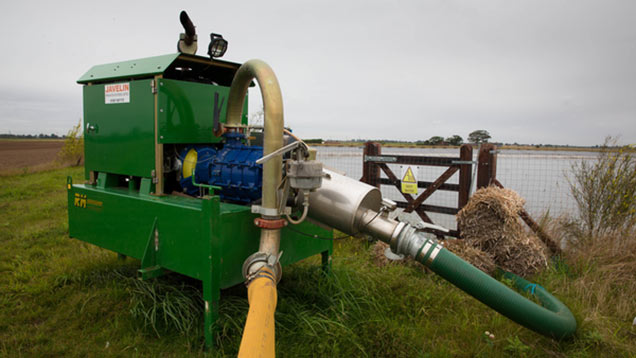Farmers face ‘wake-up call’ on irrigation
 ©Tim Scrivener
©Tim Scrivener Growers irrigating crops in East Anglia face major challenges, with water abstraction under pressure from the twin effects of a growing population and climate change.
Farmers must be allowed to play an active role in discussions about local water management, said Jamie Lockhart, chairman of the Broadland Agricultural Water Abstractors Group (Bawag).
See also: Changes to water rules ‘threaten farming’
Bawag represents more than 100 growers who irrigate arable and horticultural crops in the Broadland Rivers catchment area of east Norfolk.
Access to water would come under increased pressure from local development and housing growth, as well as greater environmental need due to climate change, said Mr Lockhart.
“It’s going to be increasingly important for the farming community to be actively involved in discussions about local water management,” he warned.
Bawag had a key role to play in finding ways for farmers to be part of the solution rather than the problem, added Mr Lockhart.
“The ‘nearly drought’ of 2012 was a real wake-up call for us.
“Before the rains came to get us out of jail, irrigated crop production on the farm faced a major water shortage which would have seriously hampered our crop production and profitability.”
As farm manager of Honingham Thorpe Farms, near Norwich, Mr Lockhart oversaw a major new reservoir project on the 2,430ha holding in the wake of 2012.
The farm took immediate steps to futureproof the business against water scarcity by installing a 45m gallon reservoir that came on stream a year later.
As well as managing the risk of water availability, the project allowed the farm to expand its potato production and move into growing onions.
But Mr Lockhart said the agricultural response to water shortages needed to be about much more than individual farmers building their own storage.
There was much to be done in getting a fair share of water for Norfolk farmers during proposed regulatory changes in the years ahead, he added.
“Agriculture needs to get much more involved in the strategic management of water across the whole Broadland area,” said Mr Lockhart.
